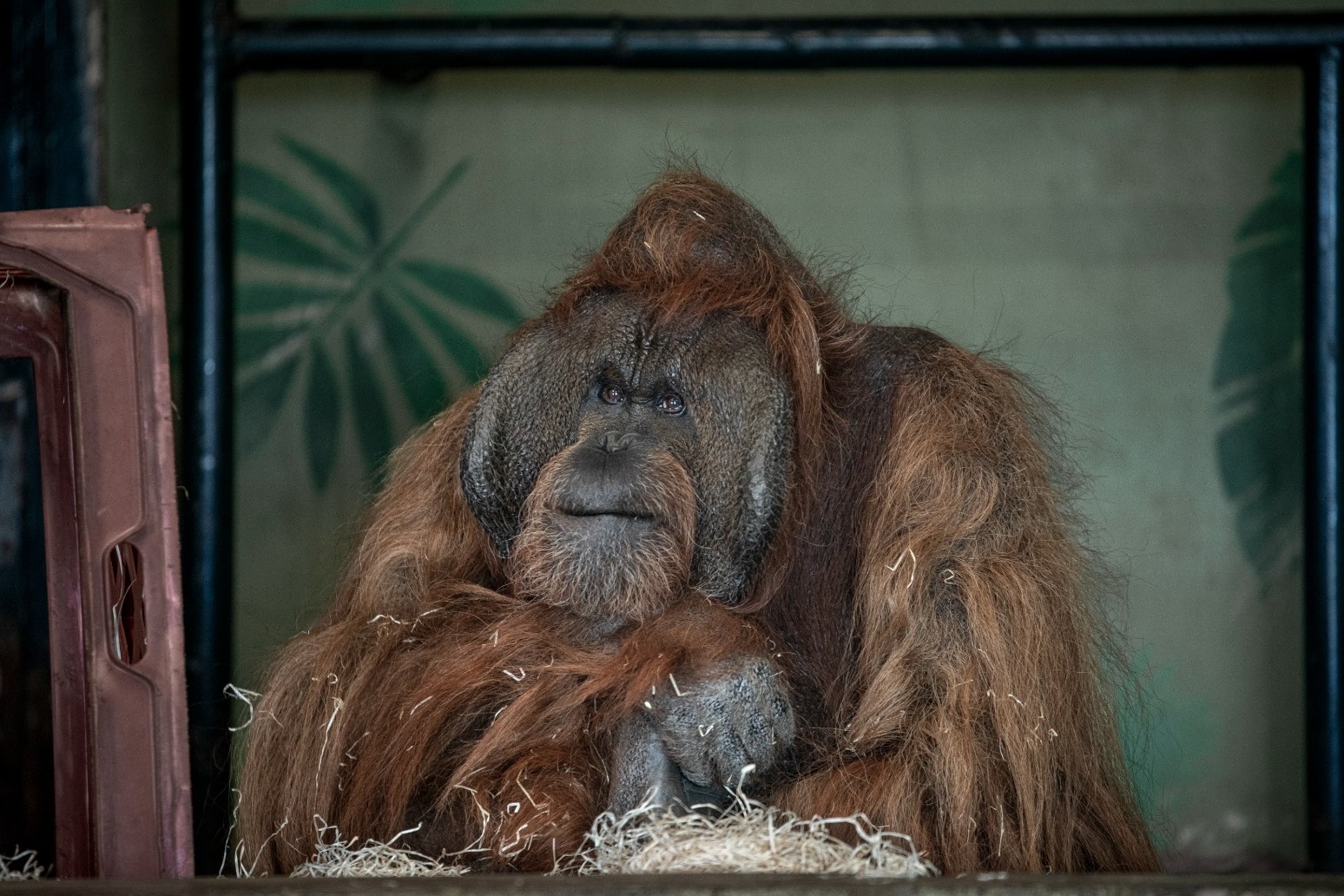Listeners:
Top listeners:
-
 play_arrow
play_arrow
Rother Radio (128K) Love Local, Love Music!
-
 play_arrow
play_arrow
Rother Radio (64K) Love Local, Love Music!
-
 play_arrow
play_arrow
Rother Radio (South Yorkshire) (64K) Love Local, Love Music!
-
 play_arrow
play_arrow
Rother Radio (South Yorkshire) (128K) Love Local, Love Music!
-
 play_arrow
play_arrow
Rother Radio (Doncaster) (64K) Love Local, Love Music!
-
 play_arrow
play_arrow
Rother Radio (Doncaster) (128K) Love Local, Love Music!
-
 play_arrow
play_arrow
Rother Radio Xmas Love Local, Love Music!
-
 play_arrow
play_arrow
Rother Radio – Special Announcement Love Local, Love Music!


Conservationists are calling for the phaseout of great apes in zoos where they experience chronic stress and other health impacts.
Conservationists are calling for the phaseout of great apes in zoos where they experience chronic stress and other health impacts.
Wildlife charity the Born Free Foundation is urging members of the public not to visit attractions that keep animals such as gorillas, chimpanzees, bonobos and orangutans in captivity.
In a report released on Thursday, the charity said more than 1,500 great apes are held in zoos across Europe, and of these, more than 300 are found in 21 establishments across the UK.
The paper explores scientific literature, decades of observation and case studies that demonstrate the impact of keeping great apes in these environments, arguing that zoos will never meet the animals’ complex physical, emotional and social needs.
Great apes can suffer from abnormal stereotypic behaviours, chronic stress, obesity, heart disease and poor mental health in zoos, the report says.
It also warns of the dangers posed to the animals breeding in zoos, such as traumatic births, high rates of stillbirths, maternal rejection and instances of infanticide.
And zoo guidelines have been found to recommend treating great apes with antidepressants to alleviate anxiety caused by living in groupings and enclosures far removed from their natural habitats, according to the findings.
Born Free criticised claims that keeping and breeding great apes in captivity is important for conservation efforts.
The charity argues that zoo-bred species are genetically and behaviourally unsuitable for release into the wild and would pose serious risks to wild populations.
The plea comes after the release of the UK Government’s revised standards of modern zoo practice, which are set to take effect in May 2027.
Born Free has questioned whether any zoo will be able to meet the new great ape welfare benchmarks in full if they are implemented effectively.
In its report, the charity ultimately calls on governments, regulators, zoo associations and campaigners to work together to humanely phase out the practice across the world.
Dame Virginia McKenna, Born Free’s co-founder, said: “When I see a great ape looking at me from behind the bars or reinforced glass in a zoo, something in me falters.
“These intelligent, feeling beings do not belong in cages.”
Will Travers, Born Free’s co-founder and executive president, said: “Wild great apes and the places they live in around the world are crying out for help.
“Treating them as living commodities, to be stared at rather than admired and celebrated, shows us that, while humans may dominate this planet of the apes, we know the price of everything but the value of nothing.”
Broadcaster and naturalist Chris Packham called the report “a distressing catalogue of wrongs wrought upon our closest genetic kin”.
“All the evidence to prove radical change is now imperative is here,” he said.
Ian Redmond, the world-renowned great ape expert, said: “Having had the privilege of spending time with great apes in their natural habitat, where they take their own decisions in life, I find it increasingly uncomfortable seeing their lives in captivity.
“The zoo industry and the Government must take note of changing public attitudes and, based on scientific evidence of ape cognition and ecology, heed the recommendations in Born Free’s new report.”
Published: by Radio NewsHub
Written by: Radio News Hub
Similar posts
Search Rother Radio
Contact Us
- https://www.rotherradio.co.uk
- 01709 257 175
- studio@rotherradio.co.uk
About Us
Rother Radio – Love Local, Love Music! → Discover more
Our Partners
Rother Radio is owned by Rotherham Broadcasting CIC








